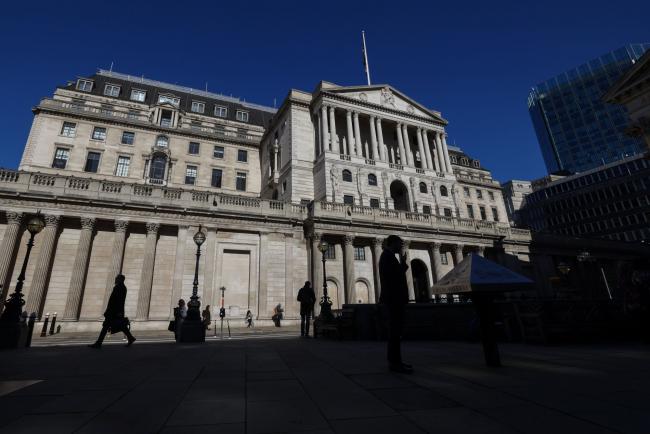(Bloomberg) -- The Bank of England raised its key interest rate for the third successive meeting, taking borrowing costs back to their pre-pandemic level and warning the war in Ukraine may push inflation well above 8% later this year.
The increase to 0.75%, was backed by eight of the bank’s nine policy makers, with Deputy Governor Jon Cunliffe voting for no change. It marks the quickest pace of tightening since 1997, just after the BOE won the authority to set policy independently.
The central bank said inflation now looked set to climb to around 8% in the second quarter, up from 7.25% previously. It warned the peak rate later this year could be “several percentage points higher” than estimated in February.
Officials led by Governor Andrew Bailey said a further tightening of policy “might be” appropriate in the coming months, a softening from the wording in February, when they said such a move was “likely.” They also noted “there were risks on both sides of that judgment.”
The spike in inflation means the squeeze on households incomes in the U.K. will be “materially larger” than implied in February, the BOE said. It also warned that the war in Ukraine will exacerbate global supply chain disruptions and said its regional agents found evidence it’s already snarling supply chains for manufacturers.
The squeeze on incomes will lead to a weaker outlook for growth and raise unemployment, officials said. Cunliffe in voting to leave rates unchanged focused on that dynamic and concerns about the “very material negative impacts” that higher commodity prices will have on living standards.
For the rest of the committee, robust growth in recent months and a continued tightening in the labor market warranted a move. They said that job shortages were unlikely to ease as quickly as had been expected in February.
The decision suggests policy makers expect an increasingly delicate balancing act in the coming months as they weigh both how to combat inflation and the growing threats to growth from the impact of the war in Ukraine.
Further out, the BOE also said inflation will “fall back materially,” a comment that, combined with the gloomy outlook for living standards, suggests a degree of pushback against current market pricing for rates to hit 2% by the end of the year.
For now, the BOE is leading the way in a global tightening of monetary policy, and is the first major institution to bring rates back to their pre-covid setting. The BOE decision came just hours after the U.S. Federal Reserve raised interest rates by a quarter percentage point and signaled six more such hikes this year.
©2022 Bloomberg L.P.
